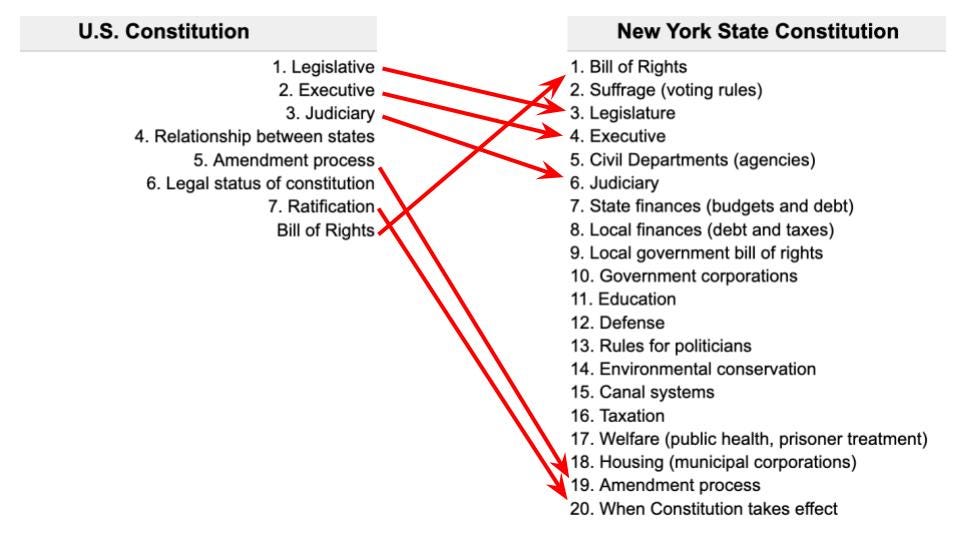Author’s note: I’m currently in a New York state government class via Maximum New York. I’ll post some of my class writing on this Substack if I think it’s informative!
You are probably familiar with the United States Constitution. However, if you were like me, you probably weren’t familiar with the document that defines government in this state: the New York State Constitution.
Why care about the New York State Constitution?
The U.S. Constitution’s 10th Amendment reserves powers not delegated to the federal government to states and people. This grants individual states broad powers to design government as they see fit, provided they don’t conflict with the U.S. Constitution.
So if you live in New York and want an abundance-focused government like we do, it might be worth understanding how the state constitution works.
How does the content of the New York Constitution compare to the U.S. Constitution?
The New York Constitution has some of the same blueprint content as the U.S. Constitution but also digs deeper into how state and local authorities should operate. Here’s my own mapping:
As you see, the New York Constitution has much stronger opinions on agency and local government power. The New York Constitution has more implementation legal code than the U.S. constitution, which is more of a blueprint.
(Side note: you can see why the authority of federal agencies is more vulnerable to legal challenges than New York state agencies would be, since the latter are explicitly mentioned in the state constitution).
It’s fair to say the New York Constitution is a more complex document than the U.S. Constitution. These stats hit home this point:
How can the New York Constitution be amended?
Any amendments to the state constitution have to be approved by voters via ballot. This can happen in two ways:
Historically, for Convention-referred amendments voters have preferred to vote on each amendment individually (as line items) instead of all of them together using one question.
In 2017, New York voters turned down the opportunity to host a Constitutional Convention. In principle, the legislature can pass a law calling for a convention at any time, although the next time New York will be required to ask voters if they want a convention will be in 2037.







